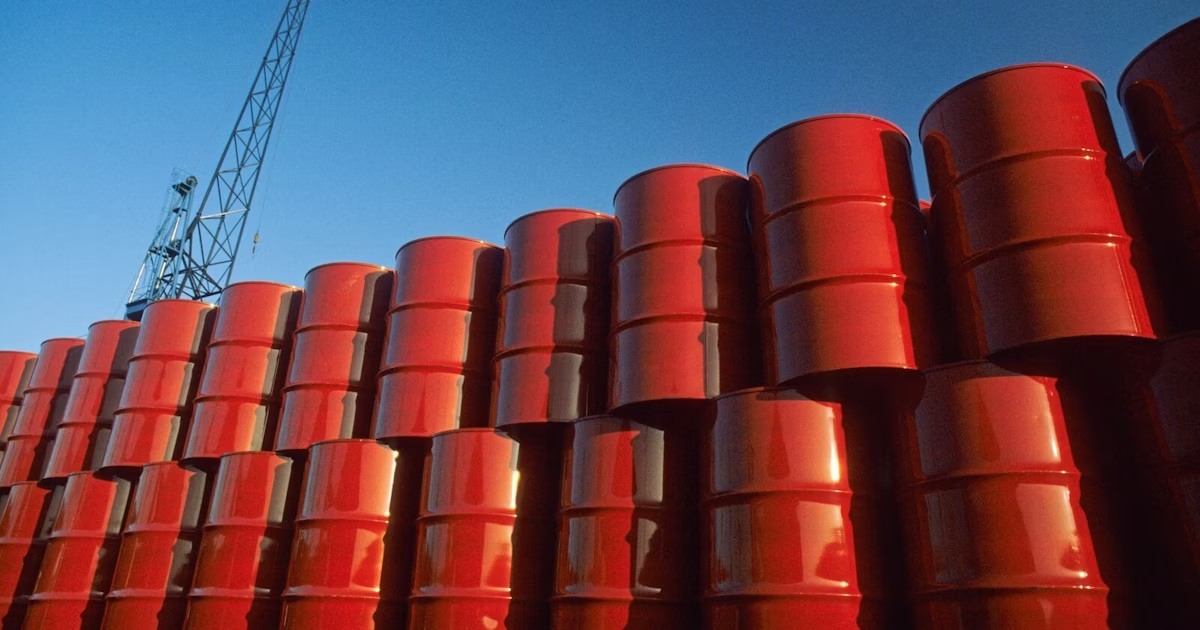ASTM D2007 SARA Fraction Analysis Testing
The ASTM D2007 SARA fraction analysis testing is a critical analytical method used in the oil and gas sector to characterize crude oils. This test is instrumental for understanding the chemical composition of petroleum products, which helps in identifying potential environmental impacts, optimizing refining processes, and ensuring compliance with regulatory standards.
The acronym "SARA" stands for Superfund Amendments and Reauthorization Act, a part of US legislation aimed at cleaning up hazardous waste sites. The ASTM D2007 test is specifically designed to separate the crude oil into four fractions: naphtha, gas oil, residual fuel oil, and distillate. This fractionation process provides insights into the boiling point ranges of different components within the petroleum mixture.
The primary objective of this testing methodology is to determine the relative proportions of these fractions in a given sample. This information is essential for various stakeholders including quality managers, compliance officers, R&D engineers, and procurement teams involved in oil and gas operations. By understanding the SARA fractions, companies can make informed decisions about refining processes, storage conditions, and potential environmental risks.
For instance, if a particular fraction contains higher concentrations of certain chemicals known to be toxic or carcinogenic, this knowledge is crucial for ensuring that these substances do not enter the environment during production, transportation, or disposal. The test results also aid in optimizing refinery operations by allowing adjustments based on feedstock composition.
The ASTM D2007 SARA fraction analysis employs distillation as its fundamental technique. During the procedure, a sample of crude oil is heated under controlled conditions until it vaporizes at various temperatures corresponding to different boiling points. These vapors are collected and condensed back into liquid form, thus separating the original mixture into distinct fractions.
Standard operating procedures for ASTM D2007 require precise control over temperature settings and time intervals to ensure accurate separation of each fraction. Compliance with these standards is vital not only for obtaining reliable data but also for maintaining credibility within regulatory frameworks such as those outlined by SARA itself.
One key aspect of this testing involves ensuring that all samples undergo rigorous quality checks before undergoing distillation. This includes thorough cleaning procedures to eliminate any contaminants that could affect the accuracy of the results. Additionally, proper calibration of instruments used in the process ensures consistent readings across multiple tests conducted over time.
The outcome of ASTM D2007 SARA fraction analysis provides valuable information about both the composition and potential environmental risks associated with crude oil samples. This knowledge supports strategic decision-making throughout the lifecycle of petroleum products from extraction to final disposal.
Eurolab Advantages
EuroLab prides itself on offering world-class services that cater specifically to the needs of our clients within the oil and gas sector. Our commitment to excellence is reflected in several key areas:
- Innovative Technology: Leveraging cutting-edge technology ensures that we provide accurate, reliable results every time.
- Expertise: Our team comprises highly skilled professionals who possess deep knowledge of industry regulations and best practices.
- Precision: State-of-the-art laboratories equipped with advanced analytical tools guarantee precision in our measurements.
- Compliance: Ensuring that all tests comply with relevant international standards like ISO, ASTM, EN, IEC, etc., is at the heart of our operations.
We understand that trustworthiness and reliability are paramount when it comes to oil and gas testing. EuroLab guarantees that every test performed adheres strictly to these principles, thereby fostering confidence among our clients.
Why Choose This Test
- Better Decision Making: Understanding the SARA fractions allows for more informed decisions regarding refining processes and operational adjustments.
- Regulatory Compliance: Ensures that all activities related to crude oil handling meet stringent environmental protection laws and regulations.
- Risk Assessment: Identifies potential risks associated with specific components present in the sample, enabling proactive management strategies.
- Data Accuracy: Precise measurement techniques ensure accurate representation of the actual composition of the sample.
The ASTM D2007 SARA fraction analysis testing is particularly advantageous because it offers a detailed breakdown of crude oil components. This information is invaluable for various stakeholders involved in oil and gas operations, including quality managers, compliance officers, R&D engineers, and procurement teams. By providing comprehensive insights into the chemical makeup of petroleum products, this test supports strategic decision-making processes across all stages of the lifecycle.
International Acceptance and Recognition
The ASTM D2007 SARA fraction analysis testing holds significant international recognition due to its reliability and accuracy. It is widely accepted in many countries around the world as a standard method for characterizing crude oils. This global acceptance underscores its importance in ensuring consistent quality across different jurisdictions.
- Consistency: The widespread use of ASTM D2007 ensures that results are comparable between laboratories regardless of location, promoting consistency in data interpretation and application.
- Standardization: Compliance with international standards like ISO, ASTM, EN, IEC, etc., enhances the credibility of the test outcomes. These standards provide a benchmark against which all tests can be measured, ensuring uniformity.
The global acceptance of ASTM D2007 SARA fraction analysis also facilitates better collaboration among countries and organizations worldwide. This interoperability fosters a collaborative environment where knowledge sharing is encouraged, leading to advancements in technology and practices within the oil and gas industry.





